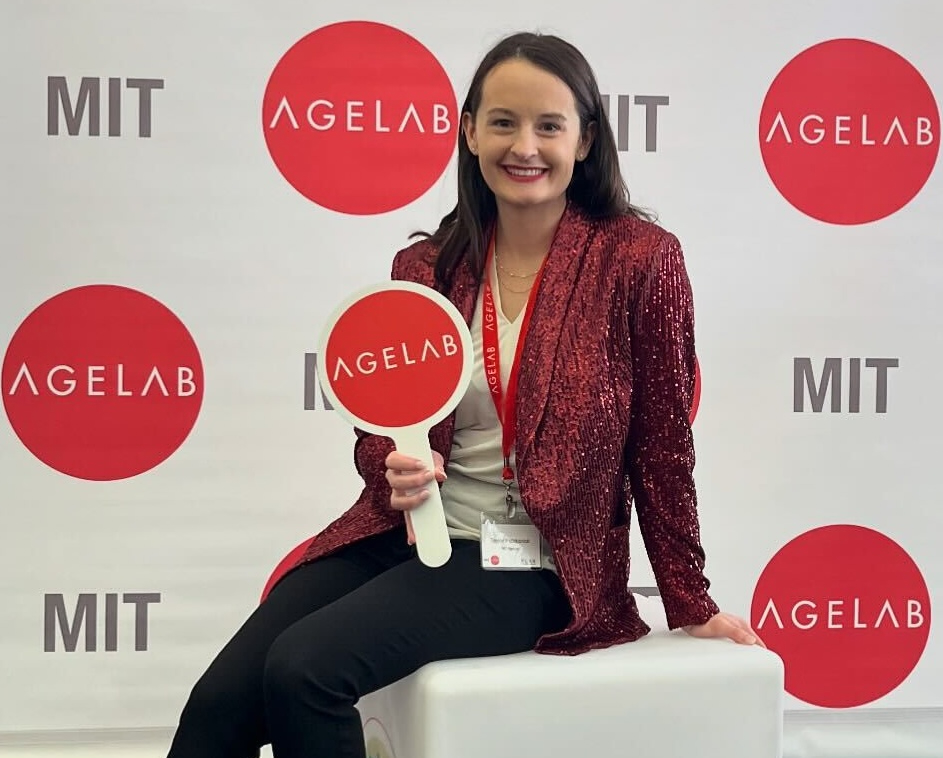Talia Chait: My Summer at the AgeLab
Before I talk about my internship experience this summer with the MIT AgeLab, I want to tell you a little bit about myself. My name is Talia Chait and I am a sophomore at Macalester College in Saint Paul, Minnesota. I plan to major in psychology and pursue a minor in data science. This is my third summer interning at the MIT AgeLab. Throughout my time at the lab as an intern, I have had the opportunity to work on many different projects and have learned a ton about social science research and working in a university environment. From actively participating in staff meetings, to working on an MIT MISTI project with MIT-Portugal and expanding the MIT AgeLab’s OMEGA initiative, I have been lucky enough to work alongside amazing, compassionate, and passionate people.
One of the major projects I worked on this summer was a study carried out with MISTI and MIT-Portugal in collaboration with professors from the University of Coimbra and the University of Porto. The research questions explored people’s perspectives on residential density and desirability of urban areas in consideration of a post-COVID-19 era. The first phase of the project involved completing eight interviews with participants in the United States and in Portugal. After the transcripts from the interview audio recordings were generated and cleaned for any errors, I coded these interviews using a qualitative coding scheme created by the research teams. These codes were then used to inform a set of new survey questions for the second phase of the project. This survey was also informed by a questionnaire developed in a previous MIT AgeLab study comparing trends in the physical and emotional support of neighborhoods for older adults in the United States and Germany (see König et al., 2019). Ultimately, I was able to provide the foundation for the writing of a results section of an academic paper based on findings from the U.S. interviews in particular.
This summer I also wrote an extensive literature review on the topic of the 85+ age group’s use of technology during the pandemic. This review will serve as important background information for future papers and presentations in support of ongoing research being conducted by the MIT AgeLab with the 85+ Lifestyle Leaders Panel. I also learned this summer how to use IBM® SPSS® statistical software to analyze data and create a research brief based on data collected by the AgeLab’s CareHive Consortium on COVID-19 vaccination trends among family caregivers.
For future interns: you are very lucky to be able to work with such amazing people who are so dedicated to the work that they do. I hope you walk into the office (or hop onto Zoom!) with a positive attitude, ready to work hard. And be sure to bring an empty stomach when work returns in-person because there is often a lot of yummy food around! Most of all, have fun, learn, and grow. Don’t hesitate to ask questions and bring new ideas to the table – the people working at the MIT AgeLab want to hear from you. Lastly, enjoy your time because it goes by quickly!
I’d like to thank all of the staff at the MIT AgeLab for believing in me from my very first day at the lab and for giving me an opportunity to work on major AgeLab initiatives including OMEGA, the 85+ Lifestyle Leaders Panel and the MISTI/MIT-Portugal project. I was a rising high school junior when I first started working at AgeLab, and yet from the very beginning, I felt like I was a part of the team. I have learned so much in the past three years, more than I ever imagined I would, and I will take these lessons with me well into the future.
A native of Lexington, Massachusetts, Talia Chait is a sophomore at Macalester College in Saint Paul, Minnesota and 3-year summer intern at the MIT AgeLab. She is considering majoring in psychology and minoring in data science.
